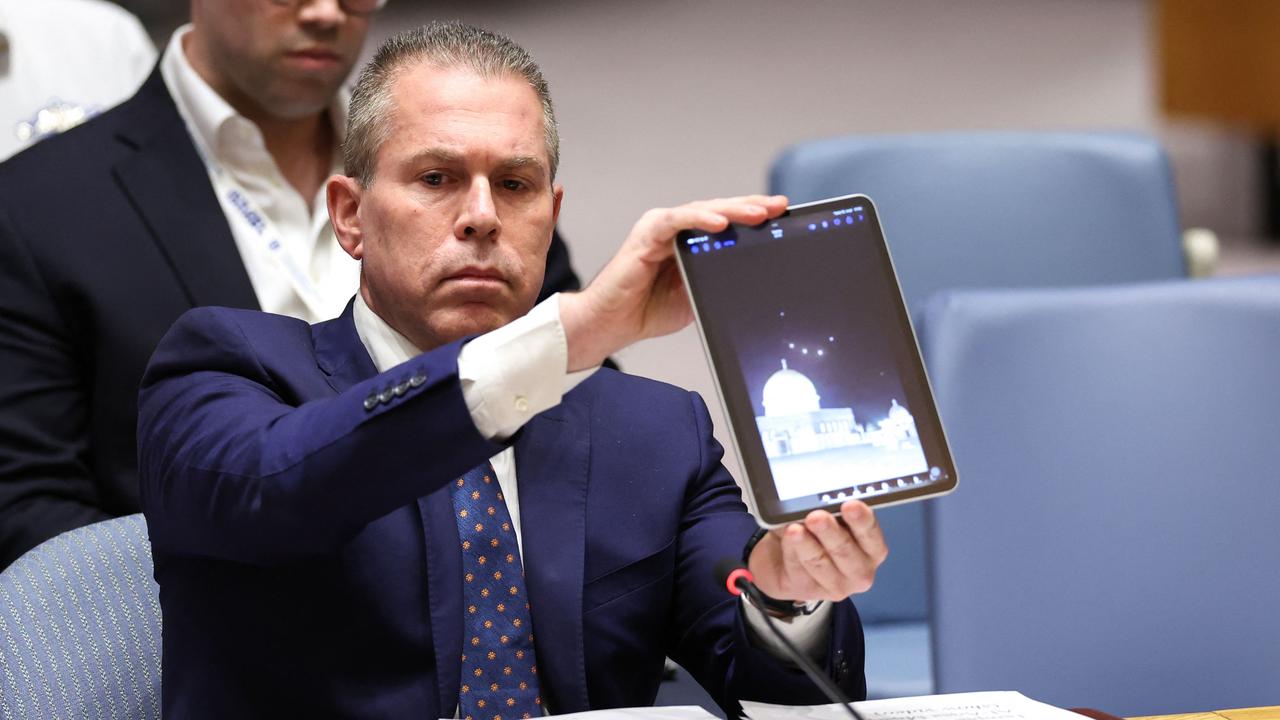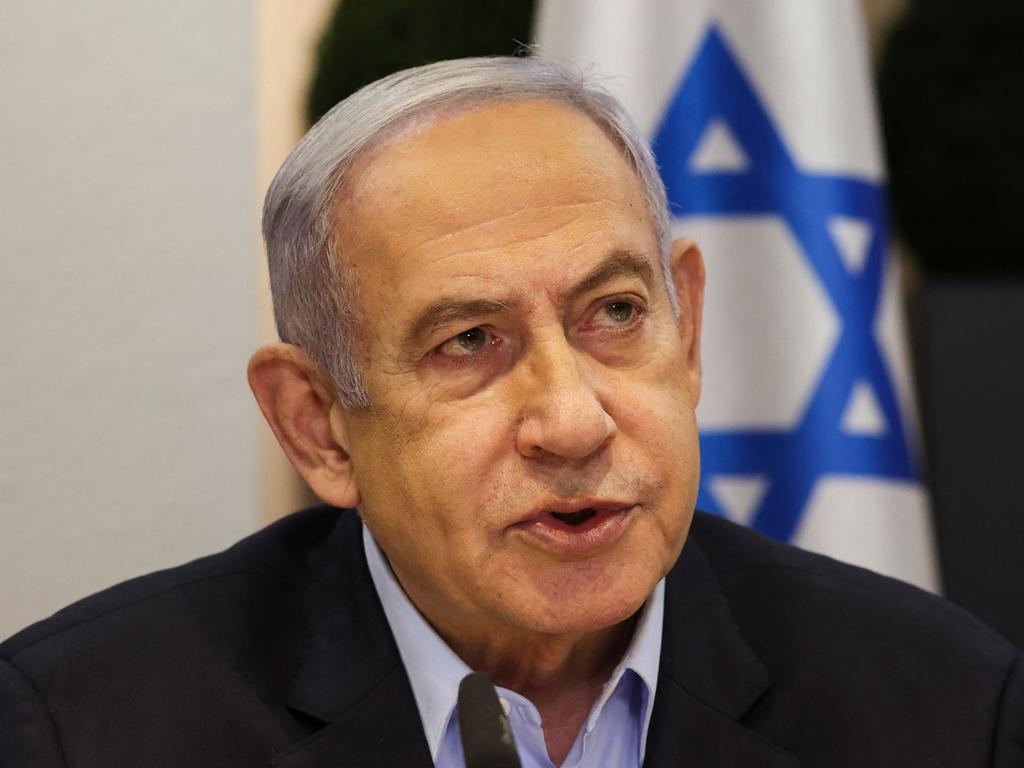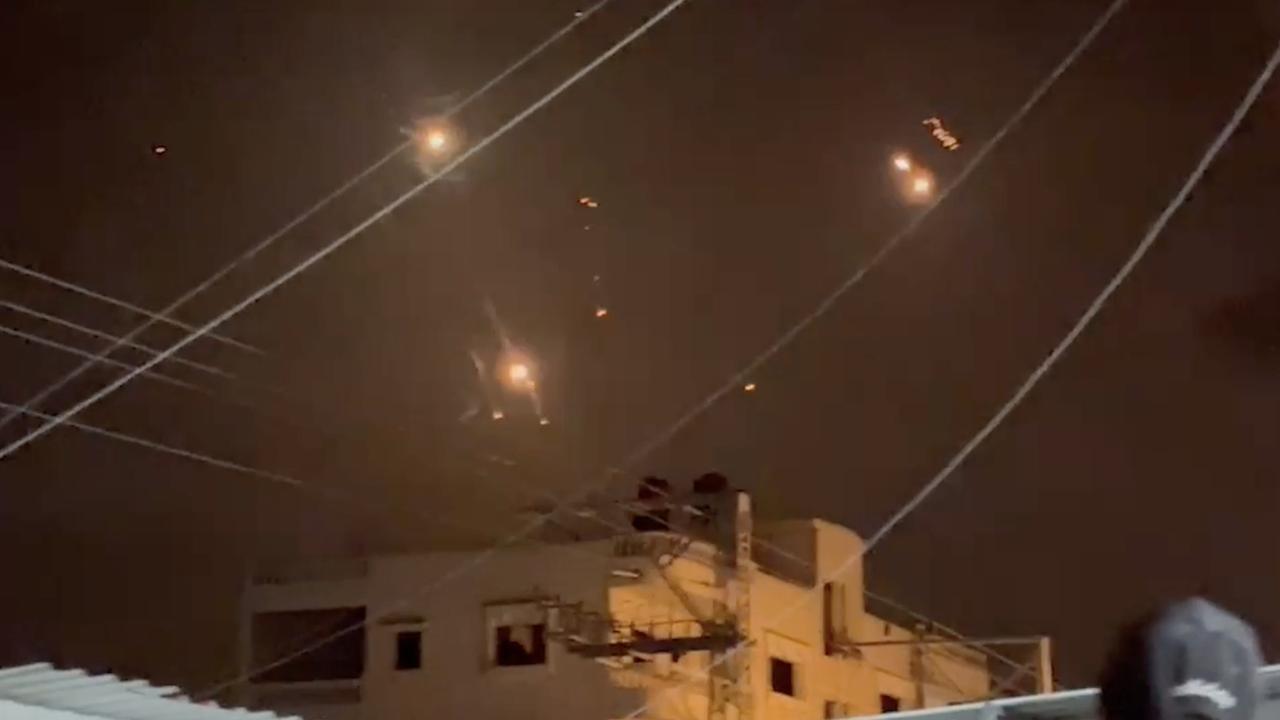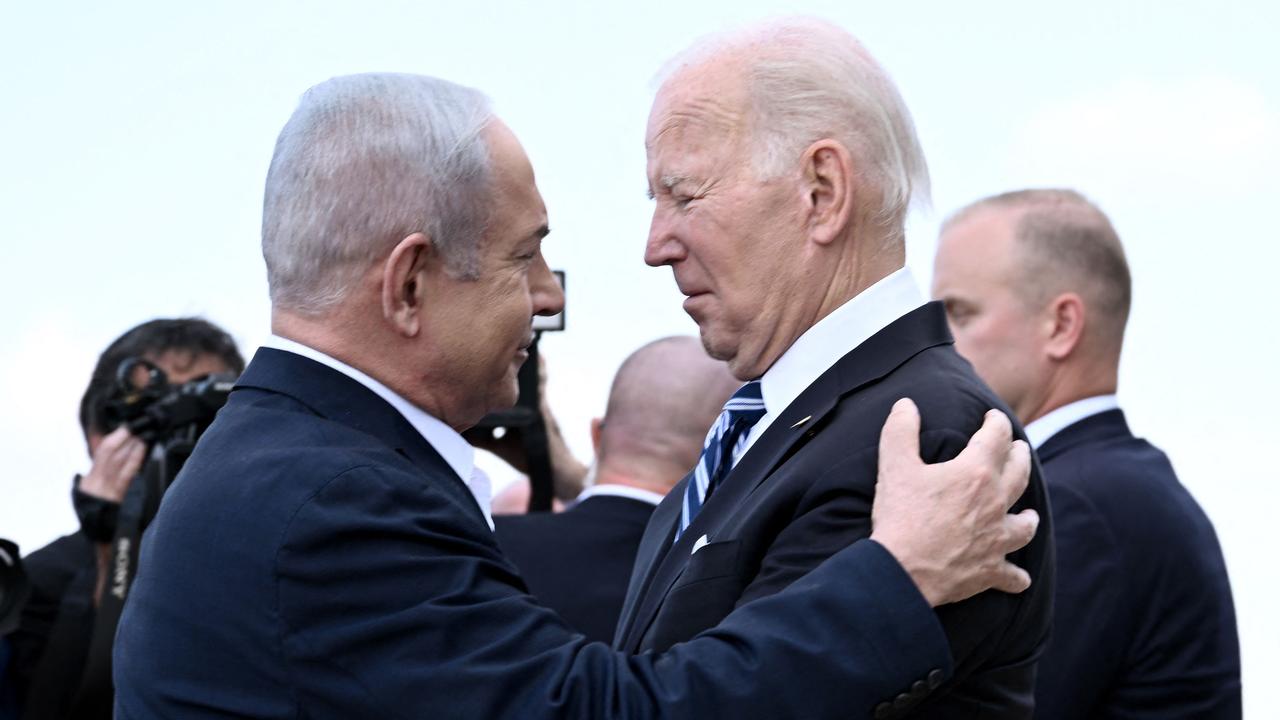World War Three hinges on Netanyahu’s next move
The world is holding its breath. Waiting. Will the tit-for-tat escalations between Israel and Iran lead to World War III?
The world is holding its breath. Waiting. Will the tit-for-tat escalations between Israel and Iran continue? Is open conflict inevitable? Will it trigger a cascade of events that could lead to World War III?
All eyes are on embattled Israeli Prime Minister Benjamin (Bibi) Netanyahu. How will he respond to what Ayatollah Ali Khamenei says is his response to Israel’s bombing of Iran’s embassy compound in Syria on April 1?
Iran states “the matter can be deemed concluded” despite the failure of its massed force of 300 drones and missiles to inflict significant damage against Israel Sunday morning Australian time.

“At this point, the Islamic Republic of Iran has no intention of continuing defensive operations, but if necessary, it will not hesitate to protect its legitimate interests against any new aggression,” Iranian Foreign Minister Hossein Amir-Abdollahian stated on social media.
But Israeli media is reporting an “unnamed government official” as promising there will be an “unprecedented response”.
For his part, Netanyahu has simply stated: “We have intercepted. We have contained. Together we shall win”.
His next move will have global implications.
China has expressed sympathy for Iran’s actions. Russia accepts Tehran’s explanation that the assault was in “self-defence”.
And while neither has spoken forcefully against Israel’s conduct in its occupation of Gaza, both Moscow and Beijing have been actively strengthening ties with Tehran’s theocratic (religious) government.
“Nobody except maybe Bibi wants this to get out of control,” an anonymous “senior US official” told Politico this morning, referring to the controversial Prime Minister’s tenuous grip on power.
But his strained coalition government may already believe it is fighting World War III.

His Foreign Minister, Israel Katz, insisted in January that Israel was already “at the height of World War III against Iran and radical Islam.”
And overnight, Israeli War Cabinet Minister Benny Gantz warned: “The event is not over … We will build a regional coalition and collect the price from Iran in the way and at the time that suits us.”
The nuclear option
Ultranationalist and far-right elements of Israel’s parliament (Knesset) are demanding an overwhelming response from Prime Minister Netanyahu.
National security minister Itamar Ben-Gvir and finance minister Bezalel Smotrich insist President Biden’s calls for restraint must be ignored.
“Ben Gvir demanded a ‘crushing’ counter-attack in a series of statements over the weekend, insisting that the only way to create deterrence is to ‘go crazy’ and shed ‘restraint and proportionality’,” reports the Times of Israel.
Smotrich insists Israel is in “existential danger”: “The eyes of the entire Middle East and the entire world are on the State of Israel. If our response resonates throughout the Middle East for generations to come — we will win,” he stated.
Several members of Israel’s far-right coalition government saw the October 7 terror attacks that killed 695 Israeli civilians, 71 foreign nationals and 373 soldiers and troops as justification for using a nuclear weapon against the Palestinian Gaza Strip.
“Jericho missile! Jericho missile! … A doomsday weapon! Shoot powerful missiles without limit. Not flattening a neighbourhood – crushing and flattening Gaza,” ruling Likhud Party member Revatal Gotliv demanded in October.

In January, Heritage Minister Amichai Eliyahu restated his support for the escalation, stating, “There is no such thing as uninvolved civilians in Gaza”.
The threats came as analysts warned Iran is itself on the brink of enriching enough uranium to build a handful of nuclear warheads to counter the arsenal Israel has secretly built since the 1960s
“Tehran could make a final dash for the ultimate deterrent: nuclear weapons,” International Crisis Group analyst Ali Vaez warned in January. “Doing so would have risks, but it might provide Iran with the kind of immunity North Korea and Russia have enjoyed as they confront the West.”
Strategic equation
“Neither side wants this conflict, but it is upon them,” says Council on Foreign Relations analyst Ray Takeyh.
“And it is hard to see how they can de-escalate. Israel will most likely retaliate. Its deterrence posture mandates a response to such an attack on its territory, even if there are no casualties. And then Iran has to respond.”
Netanyahu has been emphasising the threat of Iran and its nuclear program as part of his political platform since the 1990s. And Iran’s weekend attack – from Iranian soil to Israeli soil – is widely believed to have strengthened his position.
President Biden had recently begun openly criticising the risk of genocide against the Palestinian people in Israel’s invasion of Gaza. But over the weekend, he suddenly changed his tone back to one of “iron-clad” support.

Similar tone shifts have come from the Prime Minister of Britain and the President of France. Forces from both nations shot down missiles aimed at Israel at the weekend.
“Bibi’s been given two good options — and that seldom happens,” former national security adviser to Netanyahu, Yaakov Amidror, told the US political news service Politico.
“He can either go for the head of the octopus, which is Tehran, arguing we have the legitimacy to do so now. Or he can say to the Americans: We understand that you don’t want us to escalate with Iran, and we are ready to compromise, but what we want in return is that America will give Israel all the help needed to destroy the military capability of Hamas in Gaza, including in Rafah.”
“Operation Sincere Promise”
Iran, for its part, is equally adamant that the strategic balance of the Middle East has permanently changed.
“The strategic meaning of the victorious operation of ‘The Sincere Promise’ is that the era of strategic patience towards the evils of the regime has ended, and Iran has defeated their strategy of war between wars,” advisor to the Iranian President, Mohammad Jamshidi, posted after the attack. “Now the strategic equation has changed. Targeting Iran’s forces and assets will be met with a direct response.”
Iran’s Islamic Revolutionary Guard commander-in-chief Hossein Salami told state-controlled media he is willing to launch strikes against Israel from Iranian territory again in the future.
“From now on, if the Zionist regime targets any of our personnel, properties and civilians, we will not hesitate to retaliate from our own land,” Salami said last night.
He insisted the missile and drone assault of “Operation Sincere Promise” was a measured response: “The operation could have been executed on a much larger scale. We decided to just focus on the Israeli targets that are used directly against us and our allies in the region.”
The response from Arab nations – several of which assisted in shooting down missiles and drones overflying their territories – has also been muted.
The Kingdom of Jordan was the first Arab country to directly protect Israel's skies. pic.twitter.com/dYr3kBrTt3
— IRNA News Agency (@IrnaEnglish) April 14, 2024
“Regional escalation must be prevented. It could push whole region into abyss of war,” Jordanian Foreign Minister Ayman Safadi posted to social media. But 1st step towards de-escalation is ending the Israeli aggression on Gaza & starting to implement the 2-state solution as it is the only path to security & peace for all.”
The foreign ministries of Turkey and Egypt warned of the potential for further escalation.
“Iran’s retaliation to this attack and subsequent developments have once again shown that incidents can quickly turn into a regional war,” a Turkish spokesman told local media.
“Egypt considers the dangerous escalation the Iranian-Israeli arena is witnessing is nothing but a direct result of what Egypt has previously warned about, the dangers of expanding the conflict in the region as a result of the Israeli war against the Gaza Strip, and the provocative military actions being taken in the region,” an Egyptian foreign ministry spokesman stated.
Axis of conflict
Beijing’s response has so far been muted, with Communist Party-controlled media emphasising the “restrained” nature of Iran’s “response”.
“The ongoing situation is the latest spillover of the Gaza conflict,” a foreign ministry statement reads. “There should be no more delays in implementing UN Security Council Resolution 2728 and the conflict must end now. China calls on the international community, especially countries with influence, to play a constructive role for the peace and stability of the region.”
Moscow also avoided directly apportioning blame.
“We have repeatedly warned that the numerous unresolved crises in the Middle East, primarily in the Palestinian-Israeli conflict zone, which are often fuelled by irresponsible provocative actions, will lead to an increase in tension,” Russia’s foreign ministry said in an overnight statement.
But both sides have previously made their support for Iran clear.
President Vladimir Putin has become heavily reliant upon Iran following his bungled invasion of Ukraine in February 2022. Tehran’s support has enabled him to replenish stockpiles of drones, missiles and artillery rounds ahead of a fresh onslaught. Meanwhile, continued Republican efforts to block renewed US support for Ukraine on Capital Hill have left Kyv low on ammunition and facing defeat.
For its part, Beijing has been wooing Iran for support in establishing alternative international financial and exchange systems to reduce both nations’ exposure to international sanctions.
Jamie Seidel is a freelance writer | @JamieSeidel






